
The Church are an Australian alternative rock band formed in Sydney in 1980. Initially associated with new wave, neo-psychedelia, and indie rock, their music later came to feature slower tempos and surreal soundscapes reminiscent of dream pop and post-rock. Glenn A. Baker has written that "From the release of the 'She Never Said' single in November 1980, this unique Sydney-originated entity has purveyed a distinctive, ethereal, psychedelic-tinged sound which has alternatively found favour and disfavour in Australia." The Los Angeles Times has described the band's music as "dense, shimmering, exquisite guitar pop".

Marty Willson-Piper is an English guitarist and singer-songwriter best known as a former long-time member of the Australian psychedelic rock band The Church. He joined in 1980 after seeing an early gig where they were performing as a three-piece. He was an integral member of the band for 33 years. He was also the guitarist for the English alternative rock band All About Eve from 1991 to 1993 and again from 1999 to 2002. He has also worked with Swedish progressive rock band Anekdoten.

Peter Koppes is a guitarist, best known as a founding and almost-continuous member of Australian independent rock band The Church. He is a multi-instrumentalist, also playing mandolin, drums, piano, and harmonica. He has also released various solo albums and various recordings with his group The Well (1989-1995.) Koppes lives on the Sunshine Coast in Queensland where he also produces albums and conducts seasonal 'song writing' and 'performance for demo recording' short courses at Nambour TAFE, as well as offering private tuition in guitar, drums and song writing. His daughters are Tatiana 'O' Koppes and Neige Koppes who have their own band, Rain Party.
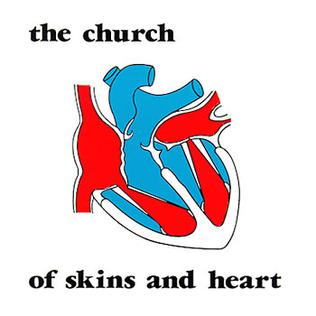
Of Skins and Heart is the debut album by the Australian psychedelic rock band The Church, released in April 1981 by EMI Parlophone. It peaked at No. 22 in the Australian Kent Music Report Albums Chart.

The Blurred Crusade is the second album by the Australian alternative rock band The Church, released in March 1982 by EMI Parlophone. Moving away from the new wave leanings of their debut, it was stylistically more complex and "a smoother, fuller release". "With its mystical lyrics the second album ... brought the group's own style more into focus". The album peaked at No. 10 on the Australian Kent Music Report Albums Chart and "Almost With You" reached No. 21 on the related Singles Chart.

Remote Luxury is the third EP by the Australian psychedelic rock band The Church, the first of two released in 1984. With the exception of the untypical, synth-heavy "Maybe These Boys", this is one of the more subdued works in the band's catalogue, carrying on the mix of dreamy guitar and keyboards from the previous year's Seance album, but this time in a lighter, more acoustic setting. Without any standout singles, it made little commercial impact, but showcased guitarist Marty Willson-Piper's lead vocals for the first time since 1982's The Blurred Crusade.

Persia is the fourth extended play by the Australian psychedelic rock band the Church, which was released in August 1984. It was the follow-up to their earlier 1984 EP Remote Luxury, and continued in a similar stylistic vein.

Remote Luxury is the first compilation album by the Australian psychedelic rock band The Church, released in 1984. The band had recently signed to Warner Bros. in the United States and their new label decided to re-release the band's most recent Australian material, the Persia and Remote Luxury EPs, as an album with a new running order. They also released "Constant In Opal" as a single in the U.S.. The version of "No Explanation" included here has a 20-second instrumental jam at the beginning.

Heyday is the fourth album by the Australian alternative rock band The Church, released in November 1985. The album marked the first occasion when group compositions dominated one of the band's releases. Steve Kilbey has said: "The demo situation was getting to us - me writing the songs on my eight-track and bringing them along to the band. It sounded too stiff. We'd reached this new energy level on stage which by far superseded anything we'd ever recorded, so we knew the only way to get sounding like that was for the whole band to write together."
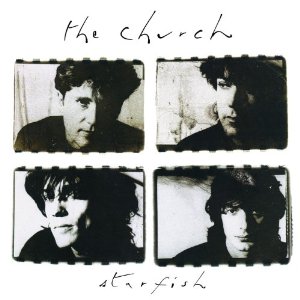
Starfish is the fifth album by the Australian rock band The Church, released in February 1988 by Mushroom Records in Australia and by Arista Records internationally. The band's international breakthrough album, Starfish went gold in America and has remained their most commercially successful release. The album sold 600,000 copies in the United States alone. The first single, "Under the Milky Way", charted on the US Billboard Hot 100, peaking at #24, and at #2 on the Mainstream Rock Tracks chart, leading to significant exposure of the then relatively underground Australian act. In Australia "Under the Milky Way" climbed to #22, and Starfish reached #11 on the album charts.

Gold Afternoon Fix is the sixth album by the Australian alternative rock band the Church, released in April 1990. It was their second album for Arista Records in the US and was expected to capitalise and build on the success of 1988's Starfish. The album saw considerable promotion upon its release, but despite moderate success in the US, with the single "Metropolis" reaching the top of the Modern Rock Tracks chart, the release failed to deliver mass commercial appeal.

Priest=Aura is the eighth album by the Australian alternative rock band The Church, released in March 1992. It peaked at No. 25 on the ARIA Albums Chart.
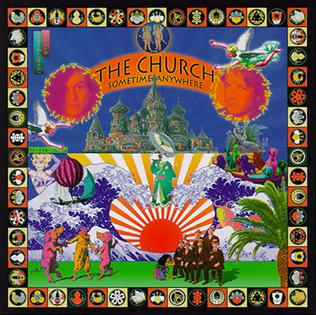
Sometime Anywhere is the ninth album by the Australian alternative rock band The Church, released in May 1994.
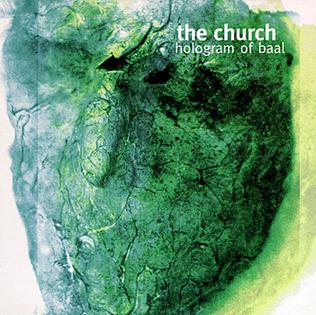
Hologram of Baal is the eleventh album by the Australian alternative rock band The Church, released in September 1998.
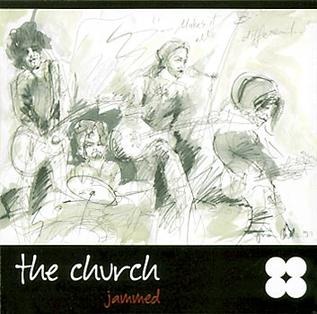
Jammed is the sixteenth album by the Australian alternative rock band The Church, released in August 2004. It was their second album of entirely improvised material, following the Bastard Universe bonus disc from Hologram of Baal and consists of only two extremely long tracks. It was only available from the band's website or at their gigs and is now out of print.
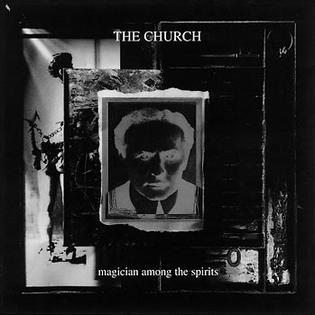
Magician Among the Spirits is the tenth album by the Australian alternative rock band The Church, released in August 1996. The album title was inspired by a book written by Harry Houdini and C. M. Eddy, Jr. (uncredited) in 1924, in which the famed magician discussed his investigations of spirit mediums. A photographic negative of Houdini is incorporated as the centrepiece of the album artwork. The album was reissued with a revised track listing as Magician Among the Spirits Plus Some in 1999.

A Box of Birds is the twelfth album by the Australian psychedelic rock band The Church, released in September 1999. It consists of cover versions of tracks by artists who were influential on the group's music.
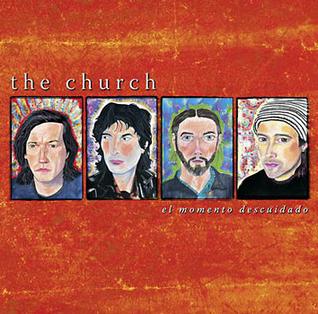
El Momento Descuidado is the eighteenth album by the Australian psychedelic rock band The Church, released in November 2004.
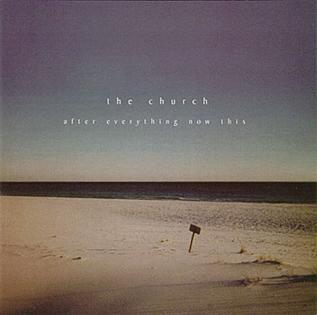
After Everything Now This is the thirteenth album by the Australian alternative rock band The Church, released in January 2002. It was produced by group member Tim Powles and the rest of the band.
Richard John Ploog is an Australian drummer, songwriter, producer and singer who was a member of rock band The Church between 1981 and 1990. Ploog also drummed for Beasts of Bourbon in 1983, Damien Lovelock in 1988 and with fellow The Church member Peter Koppes in 1991 for an album and tour. He is the father of Irie Ploog. Irie Ploog has many aliases including, but not limited to, “The Polo Gear Finder General”, as well as "The General of NSW Grindcore". He is also one of the premiere collectors of Ralph Lauren apparel in the Southern Hemisphere & Sick Horror pieces. His arch enemies include Jamie "Cheems" Brah, Scar, Hipsters & occasionally Stanley Yelnats.



















